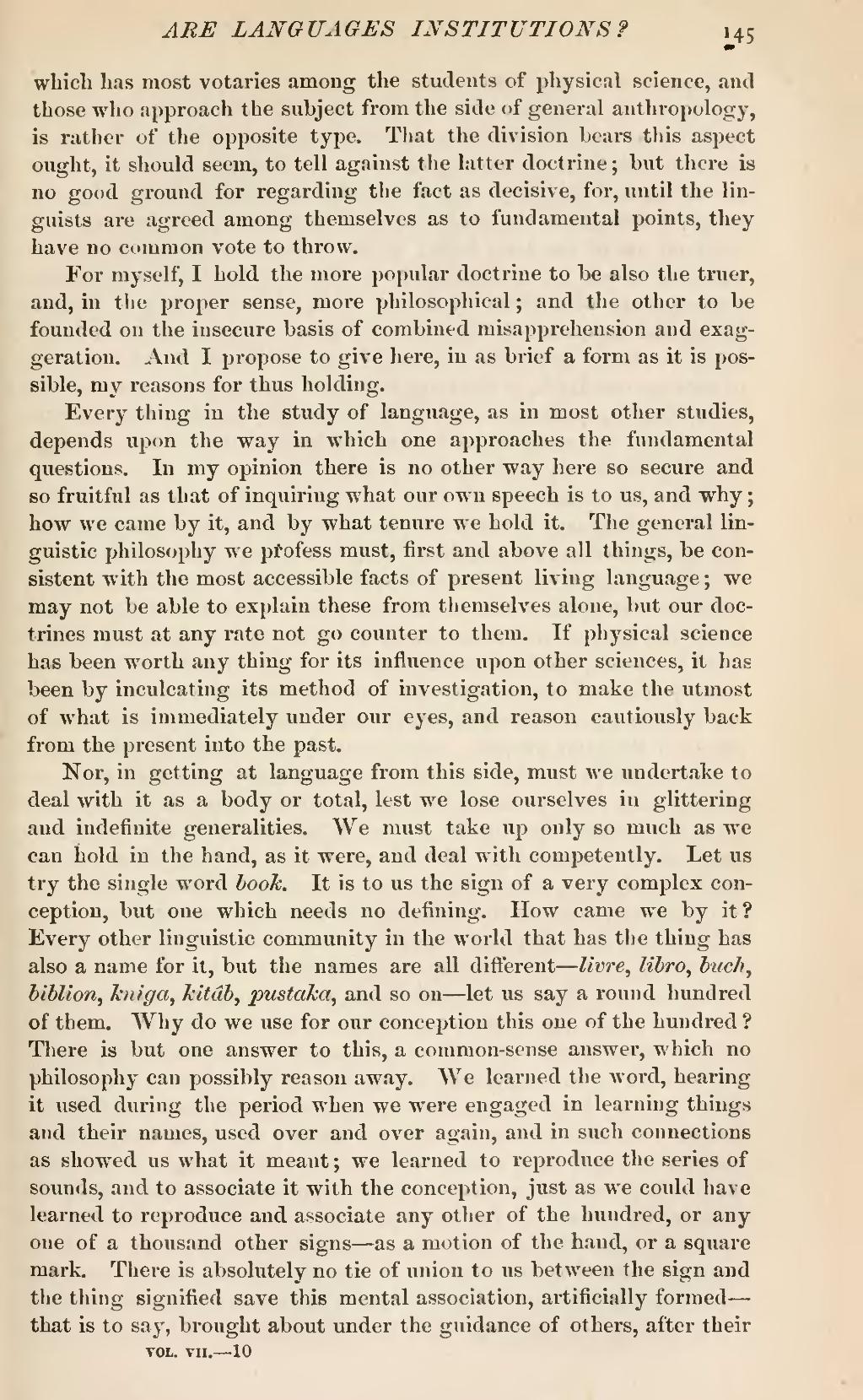which has most votaries among the students of physical science, and those who approach the subject from the side of general anthropology, is rather of the opposite type. That the division bears this aspect ought, it should seem, to tell against the latter doctrine; but there is no good ground for regarding the fact as decisive, for, until the linguists are agreed among themselves as to fundamental points, they have no common vote to throw.
For myself, I hold the more popular doctrine to be also the truer, and, in the proper sense, more philosophical; and the other to be founded on the insecure basis of combined misapprehension and exaggeration. And I propose to give here, in as brief a form as it is possible, my reasons for thus holding.
Every thing in the study of language, as in most other studies, depends upon the way in which one approaches the fundamental questions. In my opinion there is no other way here so secure and so fruitful as that of inquiring what our own speech is to us, and why; how we came by it, and by what tenure we hold it. The general linguistic philosophy we profess must, first and above all things, be consistent with the most accessible facts of present living language; we may not be able to explain these from themselves alone, but our doctrines must at any rate not go counter to them. If physical science has been worth any thing for its influence upon other sciences, it has been by inculcating its method of investigation, to make the utmost of what is immediately under our eyes, and reason cautiously back from the present into the past.
Nor, in getting at language from this side, must we undertake to deal with it as a body or total, lest we lose ourselves in glittering and indefinite generalities. We must take up only so much as we can hold in the hand, as it were, and deal with competently. Let us try the single word book. It is to us the sign of a very complex conception, but one which needs no defining. How came we by it? Every other linguistic community in the world that has the thing has also a name for it, but the names are all different—livre, lihro, buch, biblion, kniga, kitâb, pustaka, and so on—let us say a round hundred of them. Why do we use for our conception this one of the hundred? There is but one answer to this, a common-sense answer, which no philosophy can possibly reason away. We learned the word, hearing it used during the period when we were engaged in learning things and their names, used over and over again, and in such connections as showed us what it meant; we learned to reproduce the series of sounds, and to associate it with the conception, just as we could have learned to reproduce and associate any other of the hundred, or any one of a thousand other signs—as a motion of the hand, or a square mark. There is absolutely no tie of union to us between the sign and the thing signified save this mental association, artificially formed—that is to say, brought about under the guidance of others, after their

